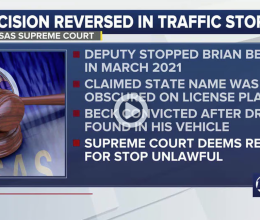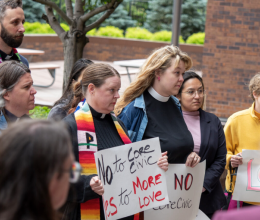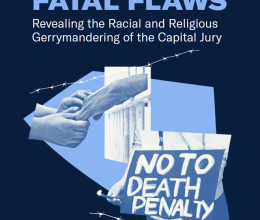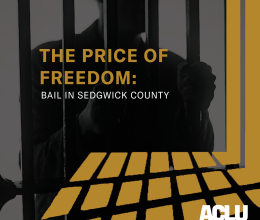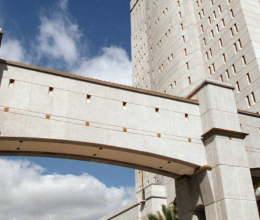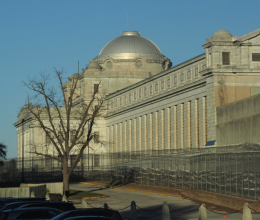
Chairman Jennings and Members of this Committee, Thank you for the opportunity to present testimony today. My name is Kendall Seal, and I am the Director of Advocacy for the ACLU of Kansas. We are a nonpartisan, non-profit organization that works to preserve and strengthen the constitutional liberties of all Kansans. We support HB 2147 as a positive step toward a more just and equitable criminal legal system.
Although we support the bill as written, we offer a few amendments to strengthen the bill’s impact on low income and minority communities in Kansas, which remain particularly susceptible to Kansas’ antiquated and discriminatory drug laws.
First, we strongly urge you to amend this bill to expressly prohibit the Prisoner Review Board (PRB) from considering whether someone has paid all of their fines, fees, and restitution in determining whether 50% of their sentence has been completed. Fine, fees, and restitution are major barriers to people completing their sentences. As it stands, this bill gives the PRB authority to determine, “any other factors deemed relevant,” which we believe is overly broad.
Fines, fees and restitution should not be a part of that analysis because they perpetuate racial disparities in the criminal legal system. This is particularly important given the racial inequities present in the state system, where people of color are 33.6% of drug arrests, but they represent only 23.9% of the state’s population. For Black Kansans, the racial inequity is even starker. They represent 5.6% of the state’s population, and they account for 18.9% of the drug arrests. As the supplemental data provided at the end of the hard copy of this testimony illustrates, racial disparities in prison sentences are prevalent in Kansas. These financial barriers are especially harsh for people of color because of longstanding racial disparities in wealth and poverty perpetuate cycles of debt and instability.
Next, transparency is needed regarding the PRB’s decisions. This bill should include provisions mandating the PRB release statistics or reports on the number of early discharge applications it receives each year, how many have been approved and denied, and the reasons for denial. The PRB should release statistics on the number of revocations and the reasons for revocation.
As currently written, this bill will have some unintended consequences because it opens up the possibility for the PRB to set conditions of probation that are too arbitrary, onerous, and unmanageable. Even the Kansas Criminal Justice Reform Commission Subcommittee on Community Supervision recognized the unintended consequences of over-supervision and too many conditions of probation. According to the text of the bill, the PRB sets the conditions of release and has the authority to revoke probation for a single infraction. This is problematic because the Kansas probation system already has too many unnecessary barriers to reentry. For example, people should not have probation revoked for failure to pay fines and fees, missing a check-in, or any other non-criminal technical violation.
SUPPORT FOR HB 2147 – Allowing early discharge from prison for certain drug offenders. Testimony of Kendall Seal, Director of Advocacy, American Civil Liberties Union of Kansas Committee on Corrections and Juvenile Justice – Feb. 10, 2020 The ACLU of Kansas urges this Committee to pass HB 2147 as a positive step forward to a more just and equitable criminal legal system. Thank you again for the opportunity to present testimony. I am happy to answer questions from this Committee at the appropriate time.
